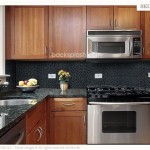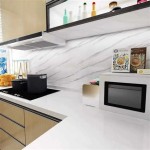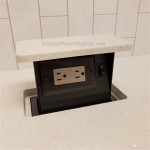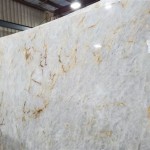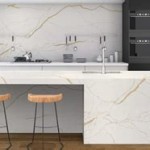How Much Do Quartz Countertops Cost?
Quartz countertops have surged in popularity as a preferred material for kitchens and bathrooms, coveted for their durability, aesthetic appeal, and low maintenance. However, a primary consideration for homeowners contemplating this upgrade is the cost. Understanding the various factors contributing to the overall price of quartz countertops is essential for effective budgeting and informed decision-making.
The cost of quartz countertops is not a fixed figure but rather a range influenced by multiple variables. These variables encompass the quality of the quartz, the complexity of the installation, the geographic location, and the specific vendor chosen. An in-depth exploration of these factors provides a clearer picture of potential expenses.
Generally, the cost of quartz countertops ranges from $50 to $200 per square foot installed. This price typically incorporates the cost of the material itself, fabrication, and professional installation. It is crucial to recognize that this range is broad, and actual costs may fall outside of these boundaries depending on the intricacies of the project.
The initial purchase price of the quartz slab is a substantial component of the overall cost. Higher quality quartz, often characterized by unique veining, intricate patterns, or a more refined finish, naturally commands a higher price point. These premium options often involve specialized manufacturing processes and sourcing of specific materials, contributing to the increased cost.
Furthermore, the fabrication process, which involves cutting the quartz slab to the precise dimensions required for the countertop and creating edge profiles, also contributes significantly to the overall expense. Complex edge profiles, such as ogee or bullnose, demand more intricate fabrication and labor, thereby increasing the cost. The presence of cutouts for sinks, faucets, or other fixtures also adds to the fabrication complexity and subsequent pricing.
Installation costs can vary considerably depending on the project's complexity. A straightforward installation in a new construction setting, with perfectly level cabinets and easy access, will typically be less expensive than replacing an existing countertop in an older home with potential structural irregularities. The removal and disposal of the old countertop further contributes to the overall installation costs.
Geographic location also plays a role in determining the price of quartz countertops. Regions with higher labor costs and increased demand for quartz may exhibit higher pricing compared to areas with lower labor rates and less competitive markets. Transportation costs for the quartz slabs can also influence the price, particularly in areas located far from major distribution centers.
The vendor or contractor selected for the project can also impact the overall cost. Larger, established companies may have higher overhead costs, leading to potentially higher prices. Conversely, smaller, independent contractors may offer more competitive pricing but may lack the same level of experience or insurance coverage. Thorough research and comparison of quotes from multiple vendors are crucial steps in ensuring a fair price and reliable service.
Ultimately, determining the precise cost of quartz countertops requires obtaining a detailed estimate from a qualified contractor. This estimate should encompass all aspects of the project, including the cost of the quartz slab, fabrication, installation, and any additional charges for demolition, disposal, or modifications to existing cabinetry. Understanding these factors allows homeowners to make informed decisions and budget effectively for their kitchen or bathroom remodeling projects.
Key Point 1: Factors Influencing the Cost of Quartz Material
The composition and aesthetic characteristics of the quartz material itself significantly impact its cost. Quartz countertops are manufactured using a blend of natural quartz crystals and resins, along with pigments for color variation. The ratio of quartz to resin, the quality of the quartz crystals, and the complexity of the color pigments all influence the material's price. High-quality quartz slabs, containing a higher percentage of pure quartz, are generally more expensive than those with a lower percentage. The durability and stain resistance of the countertop are directly correlated with the quality and composition of the raw materials used.
The aesthetic appeal of the quartz also contributes to its pricing. Quartz countertops that mimic the appearance of natural stone, such as marble or granite, often command higher prices due to the intricate manufacturing processes involved in replicating these natural patterns. Variations in color, veining, and texture all contribute to the overall aesthetic value and price of the quartz material. Some quartz manufacturers offer exclusive or custom designs, which further increase the material's cost due to the unique formulation and manufacturing processes involved. The availability of these unique designs can be limited, contributing to their higher market value.
Furthermore, the thickness of the quartz slab affects its cost. Thicker slabs, typically ranging from 2 to 3 centimeters, provide greater durability and a more substantial appearance. However, they also require more material and specialized handling during fabrication and installation, resulting in a higher price point. The choice of thickness should be based on the desired aesthetic, the counter's intended use, and the underlying support structure of the cabinetry.
The finish of the quartz, whether polished, honed, or textured, can also influence the cost. Polished finishes are the most common and generally the least expensive, while honed or textured finishes often require additional processing, resulting in a higher price. The choice of finish should be based on the desired aesthetic and the level of maintenance required. Honed finishes, while providing a softer, matte appearance, may be more susceptible to staining and require more frequent cleaning.
Key Point 2: Fabrication and Installation Costs
The fabrication process is a critical step in creating custom quartz countertops, and its complexity directly impacts the overall cost. Fabrication involves cutting the quartz slab to the precise dimensions specified by the homeowner and creating edge profiles, sink cutouts, and other necessary features. The more intricate the design and the more precise the cuts required, the higher the fabrication costs will be.
Edge profiles significantly influence fabrication costs. Simple edge profiles, such as square or eased edges, are relatively straightforward to fabricate and therefore less expensive. More complex edge profiles, such as ogee, bullnose, or waterfall edges, require specialized equipment and skilled craftsmanship, resulting in higher fabrication costs. The choice of edge profile should be based on the desired aesthetic and the overall design of the kitchen or bathroom.
Sink cutouts also contribute to fabrication costs. Undermount sinks, which are installed beneath the countertop, require precise cutouts and polished edges to ensure a seamless transition. Farmhouse sinks, also known as apron-front sinks, require even more intricate cutouts and support structures, leading to higher fabrication costs. The type of sink chosen should be considered in relation to the overall cost of the countertop installation.
Installation costs are influenced by several factors, including the complexity of the installation, the condition of the existing cabinetry, and the accessibility of the work area. Replacing an existing countertop often involves demolition and disposal of the old countertop, which adds to the overall cost. If the existing cabinetry is not level or requires modifications to accommodate the new countertop, additional labor and materials will be needed, increasing the installation costs.
The complexity of the installation also depends on the size and shape of the countertop. Large countertops or countertops with multiple seams require more careful handling and precise alignment, which can increase installation costs. Islands or peninsulas that require additional support structures also add to the complexity and cost of the installation.
Key Point 3: Additional Cost Considerations
Beyond the material, fabrication, and installation costs, several additional factors can influence the overall cost of quartz countertops. These factors include the need for plumbing or electrical work, the cost of sealants and cleaners, and the cost of any necessary modifications to the existing cabinetry.
Plumbing and electrical work may be necessary if the sink or faucet is being replaced or if new appliances are being installed. These tasks require licensed professionals and can add significantly to the overall cost of the project. It is important to factor in these costs when budgeting for a countertop replacement or renovation.
Sealants and cleaners are essential for maintaining the appearance and longevity of quartz countertops. While quartz is non-porous and resistant to staining, it is still recommended to use sealants and cleaners specifically designed for quartz to protect the surface and prevent damage. The cost of these products should be factored into the overall budget.
Modifications to existing cabinetry may be necessary to accommodate the new countertop. This can include reinforcing the cabinets to support the weight of the quartz or adjusting the height of the cabinets to ensure a level surface. These modifications can add to the overall cost of the project and should be discussed with the contractor before installation begins.
Finally, it is important to consider the potential for unexpected costs. During the demolition or installation process, unforeseen issues may arise, such as hidden plumbing or electrical problems, or structural damage to the existing cabinetry. It is prudent to set aside a contingency fund to cover these potential unexpected costs, ensuring that the project stays within budget.

How Much Do Quartz Countertops Cost

Factors That Affect The Cost Of Quartz Countertops Countertop In Oak Creek Wisconsin Granite Marble And For Franklin Waukesha New Berlin Muskego Milwaukee

How Much Do Quartz Countertops Cost To Install In Denver

How Much Do Quartz Countertops Cost 2025

Quartz Countertops Cost Estimator Estimate Florida Consulting

How Much Do Quartz Countertops Cost Angi

How Much Do Quartz Countertops Cost To Install In Denver

Quartz Worktop Calculator 2025 Checkatrade

Are Quartz Countertops More Expensive Than Granite Selection

How Much Does A Quartz Countertop Cost
See Also


